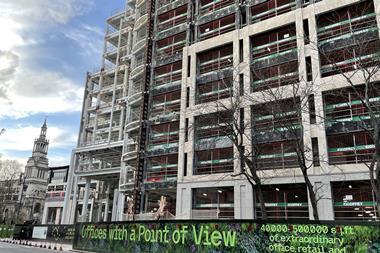As he wrestled with getting the economy back on track in the aftermath of the 2008-09 global financial crisis, then prime minister David Cameron was reported to have told ministers and civil servants alike to “cut the green crap”. This from a man who just a few years previously had been photographed hugging not a hoodie but a husky.

Unfortunately, many business leaders also heeded his words and many of the baby steps that had been made on the road to a greener future were discarded; the footprints erased. Fortunately, on the other hand, the same retreat did not occur, in the UK at least, when companies were fighting for survival during the economic maelstrom prompted by the Covid-19 pandemic.
Indeed, as wealth, accountancy and business advisory firm Evelyn argues in this latest edition of Perspectives, the crisis actually led most big corporates to double down on their commitments to all things ESG. The lack of pollution in our cities prompted a renewed appreciation of clean air, while the lockdowns instilled a greater devotion to green spaces when we were allowed out, as well as, ironically, an enhanced sense of community.
More broadly, it is telling that half of the companies contributing to the supplement have chosen to focus on environmental matters. Octopus Real Estate, for instance, makes clear that it takes its environmental responsibilities seriously, but also argues that sustainability needs to be seen in the round. For that business, sustainability also means building appropriate housing in the right locations for people at every stage of their lives.
Mishcon de Reya, meanwhile, points to the ever-increasing emphasis that all parts of the development community are placing on promoting retrofitting over demolition and rebuilding. Of course, there will always be some instances where demolition cannot be avoided, but the environmental dangers inherent in the embodied carbon in many construction materials are coming to the fore. And that is prompting some interesting legal questions.
Elsewhere, eSmart points to another, not unconnected, problem rapidly coming down the track: that getting a new development connected to the grid is becoming ever more difficult. The reason? The fact that the fight against climate change requires the electrification of vast chunks of our economy. Hyperoptic, meanwhile, provides commentary on a different type of connection, arguing that rolling out superfast, full-fibre internet needs to be more than an afterthought for housebuilders.
And finally, Prologis outlines the importance of changing perceptions of careers in logistics. After all, during the pandemic, logistics workers effectively became key workers, ensuring that we were all able to access the goods we needed while the vast majority of retailers had been forced to shutter their windows.
Whatever your perspective, we hope that the following pages provide much food for thought.
Adam Branson is a freelance journalist, writer and editor





























No comments yet